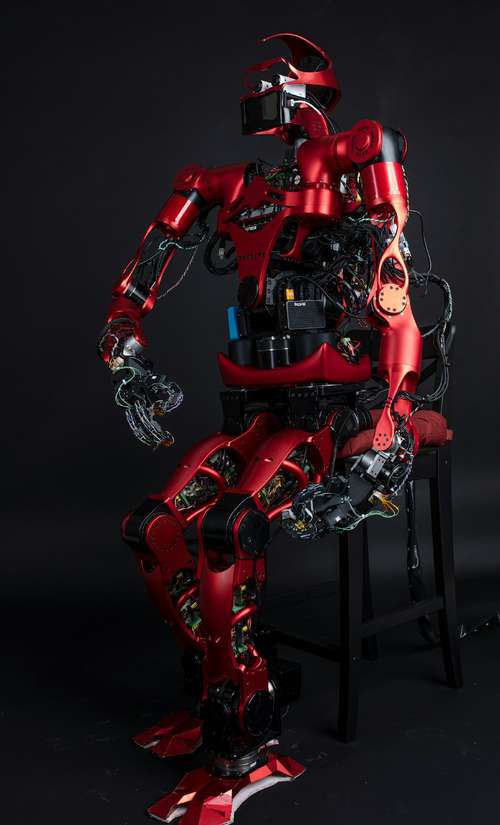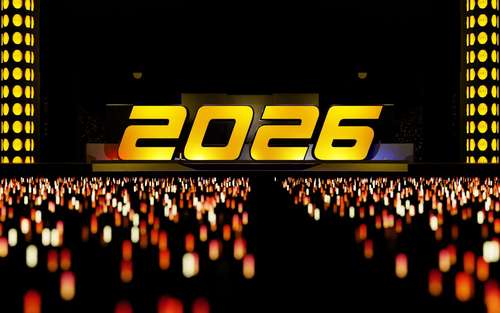It’s curious how language evolves. Over time, as technology marches forward, we find new words taking shape, new labels for the changes in our lives. One such term is 'clanker.' Once merely a descriptor of noisy machinery, it has now taken on a derisive, almost cultural meaning in discussions about robotics language. For some, it’s playful; for others, it’s a pointed criticism. As our society grows more intertwined with technology, this shift in semantics is worth exploring.
There’s a beauty in how our words change over time. Sometimes a term that started out as innocuous or technical can evolve to express deeper, human feelings about progress, efficiency, and sometimes even obsolescence. Do you ever wonder why we sometimes choose a certain label or phrase to describe modern phenomena? In the case of 'clanker,' the evolution of the term mirrors our complex relationship with technology. It’s not merely about describing a machine, but about imbuing it with a persona that reflects our attitudes today.
The Rise of the 'Clanker'
In this section, we dive into the emergence of the term 'clanker' and how it has found its place in modern discourse. The adoption of such terms in our everyday lexicon often parallels shifts in cultural attitudes and technological advances.
Historically, the word 'clanker' carried the image of something noisy and old-fashioned. But now, as we witness a rapid transformation in robotics culture and AI trends, the usage of 'clanker' as a derogatory slur for certain types of robots has emerged. It’s as if the term has become an emblem of resistance against the cold efficiency of technology. Some enthusiasts compare its resilience to how the term 'tin can' once symbolized a lack of refinement. Yet, within these words also lies a feeling of nostalgia and a cautionary acknowledgement of technology’s unchecked pace.
This transformation is clearly an example of terminology evolution. The term 'clanker' is often used in tech discussions to highlight the contrast between older, less efficient machines and the sleek, modern designs that dominate today’s markets. In many ways, it’s a cultural shift, a way to characterize the chasm between a robotics language rooted in the industrial age and one thriving on AI and machine learning advancements.
Pop Culture and the Influence on Robotics Terminology
Before delving deeper, it’s interesting to note how pop culture has played a significant part in shaping robot terminology. Over decades, films and novels have educated us about artificial intelligence and robotics, using colorful language to bring life to inanimate machines.
Much like the nods to classic cinema such as Star Wars, in which a well-known lexicon came to define an entire genre, the term 'clanker' finds its roots in a culture that loves to anthropomorphize and critique technology. By giving a machine a name, especially one with a touch of sarcasm, we construct a narrative. This narrative is often tinged with both admiration and a bit of apprehension about the future. In this context, 'clanker' isn’t just a piece of tech jargon; it’s a symbol of the cultural shift in how we perceive robots in our daily lives.
This interplay between robotics language and pop culture creates an interesting paradox. On one side, we’re in awe of robot efficiency and advancements in AI trends. On the other, there exists a counter-narrative rooted in language change, one that subtly criticizes and sometimes even mocks the cold, mechanical nature of machines. This cultural commentary, loaded with tech jargon and real-world anecdotes, makes us reflect on whether certain algorithms or devices have, inadvertently, become relics of a bygone era.
Ethical and Cultural Implications of the Term 'Clanker'
Next, we explore the ethical dimensions and cultural considerations behind dubbing robots as 'clankers.' The choice of words reflects the broader conversation on technology’s human side. Many people argue that language has the power to shape perceptions, so what does it mean when we label a robot in such a disparaging manner?
When we ascribe terms like 'clanker' to machines, the language change invites us to view them not solely as objects, but as entities with human-like flaws. This can be seen as both a rhetorical tool and a sign of deep-seated skepticism about the rapid pace of innovation. It’s interesting to think about it—do we like to remember a time when machines were simpler and perhaps, in their way, more endearing? The cultural shift in robot terminology may well reveal our uneasy relationship with systems powered by robotics and machine learning.
For instance, one could compare the evolution of 'clanker' to the way older computer models were metabolically labeled as ‘brick’ for their bulk and lack of portability. Both cases illustrate a clash between nostalgia and progress, serving as a reminder that technology does not exist in isolation but is intimately tied to societal perceptions and ethical debates. This confluence of technology impact, language change, and tech culture ultimately forces us to think twice about how we interact with the machines that increasingly shape our lives.
These ethical questions aren’t just academic. They drive discussions in meetings, conferences, and online debates across tech communities. When one refers to a robot as a 'clanker,' it is more than a simple epithet—it is a call to consider the values we attach to progress and the aluminum shells of modern marvels.
Looking Ahead: The Future of Robotics Language
In this final section, let’s speculate on where this linguistic journey might lead us. Language is not stagnant, and as our technological landscape evolves, so will our lexicon. Reflecting on growth in AI, machine learning, and robotics culture, there’s a strong chance that terms like 'clanker' will continue to evolve in meaning and usage.
We might even see the birth of an entirely new robotic lexicon as fresh innovations challenge old definitions. Every time a new gadget rolls out or a breakthrough in AI trends occurs, language often catches up. It’s like technology impact meeting terminology evolution in a dance where neither leads for long. The playful yet critical nature of terms like 'clanker' suggests that public sentiment and tech jargon are forever intertwined.
Looking forward, it will be interesting to see how this cultural shift benefits or hinders our relationship with technology. The discussion over names and labels is more than semantics—it’s an ongoing conversation about our place in an increasingly automated world. It reminds us of the responsibility we have to both cherish and critique the tools that shape our future.
This transformation of language, particularly in areas like robot terminology, illustrates a broader narrative about human progress. We are constantly negotiating with new advancements, balancing awe with skepticism. In doing so, we give life to our words, which in turn shape the very tech culture they describe.
In conclusion, the emergence of 'clanker' as a term is a fascinating example of how language mirrors the evolution of our society. From its roots in mechanical noise to a symbol of both progress and resistance, this little word encapsulates a cultural shift in robotics language that is as dynamic as the tech it describes. As we continue to integrate AI and machine learning into everyday life, expect more such intriguing evolutions in our lexicon—a reminder that language, much like technology itself, is always on the move!




